Navigate Your Way Out of Anything
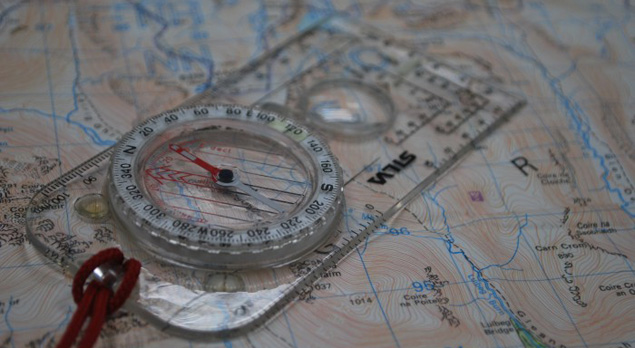
GPS devices have made finding your way effortless, but they can also lull you into a false sense of security.
As we rely ever more heavily on satnav and entering wild areas in a controlled environment, it's easy to underestimate a wilderness environment and how easy it is to get lost and potentially get into trouble if you don't know what you're doing.
The truth is that however good your "GPS-enabled handheld device" may seem, you can't beat knowing the basics of navigation with a map and compass. The good news is that in the UK we have the best maps in the world.
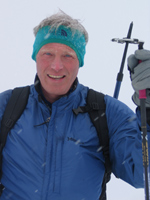
The compass, altimeter and GPS are all aids to navigation in the UK and all have their place; however, they all have their vulnerabilities, so total reliance on any one of them is unwise. It should go without saying that if you carry it, you should be practised with it.
Nigel Williams is the navigation expert at Glenmore Lodge, where he has been based for nearly 18 years in an operations management role. Prior to arriving at the Lodge, Nigel worked in a wide range of outdoor roles from the military hard skills centres to schools educational centres.
Expeditioning has also been a big part of Nigel's life. His first Himalayan climbing expedition was in 1982 when GORE-TEX® and plastic boots had just appeared, so he is the man to talk to about how not to get lost.
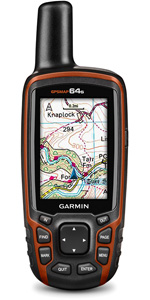
First off, what can go wrong with GPS?
"A GPS device is truly amazing, and used in conjunction with a map and compass in the UK, it will get you out of any problem. But battery life, cold and atmospheric disturbances can all affect a GPS device as can technology failures – the Russian GPS system was knocked out for 13 hours last year," explains Nigel. "Viewing the phone as the navigation tool of choice could also end up compromising its use as a rescue device if the battery runs out, so I recommend you use the GPS/phone just for occasional confirmation or for critical decision making; otherwise keep it switched off."
So smartphones aren't all bad?
"Well, there is one other thing …" admits Nigel. "Recently there have been a number of incidents where compass needles have completely and permanently reversed their magnetic polarity. Something I had not seen in 35 years of teaching navigation. The culprit is the smartphone. It has a very strong magnet in the speaker system, and regardless of whether the phone is on or off, if you let your compass rub against the phone in a pocket for a couple of hours, it can change the magnetism of the needle."
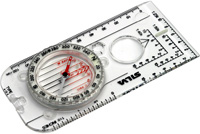
Putting the phone down, which courses at Glenmore Lodge would Nigel particularly recommend for people who are first considering a trip off the beaten track?
"The best navigators in the world are orienteers and they can be anyone teenage or older. Their map stays in hand with the compass on it. Their teaching methodology is fun and simple, focusing on the skills of ‘navigation' rather than ‘map reading'. This is the basis of navigation teaching at Glenmore Lodge, whether a 1-day introductory course or a 5-day hill walking course. You don't have to run, wear Lycra or be a member of a club to learn these simple skills!"
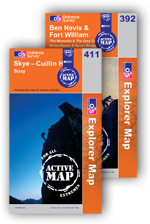
Quite often we hear of experienced climbers and similar people running into problems on Scottish mountains and needing rescue – do these groups of people often make the same mistake, or is it a whole range of things?
"There are two areas of navigation that have the most significant impact on navigational confidence and ability. One is being able to use contours effectively, and the other being well practised with relocation," explains Nigel.
"Blindfolded we can all feel what the ground is doing under our feet. Up, down, traversing, changes in steepness, etc. In other words, we can feel the ground and need to use that feeling to help us interpret the contours and our relationship with them. Slope aspect (the direction a slope faces) is another key contour piece of information and invaluable for relocation when lost. If you are on a south-facing slope, you can eliminate large areas of the map facing north, east and west."
Finally, should we ever actually get lost on purpose?
"We rarely get utterly lost, usually just misplaced and more often than not it is the result of not concentrating on the navigation," explains Nigel. "But it is good to get lost or at least cartographically challenged. I do it with considerable regularity at orienteering events, but this offers the best practice with limited consequences. Relocation skills and strategies need to be well practised, especially for winter, as stress and fear can override common sense. We cannot be confident of something we do not practise."
![]()
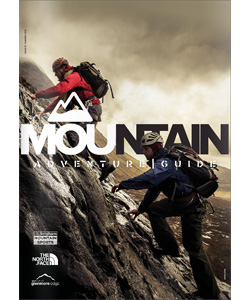
This article originally appeared in issue 1 of Mountain Adventure Guide in partnership with Glenmore Lodge and The North Face. Pick up your copy from your nearest Ellis Brigham store, or read it online here for free!






